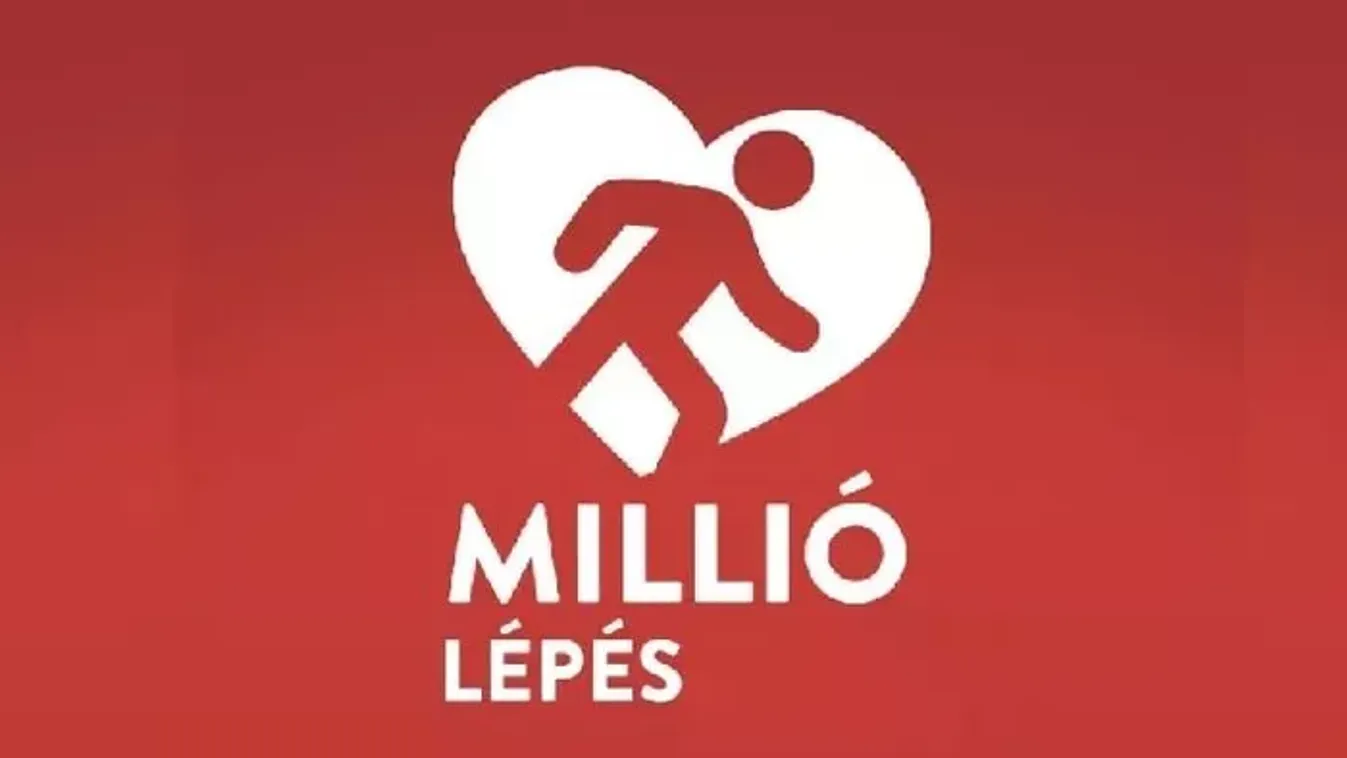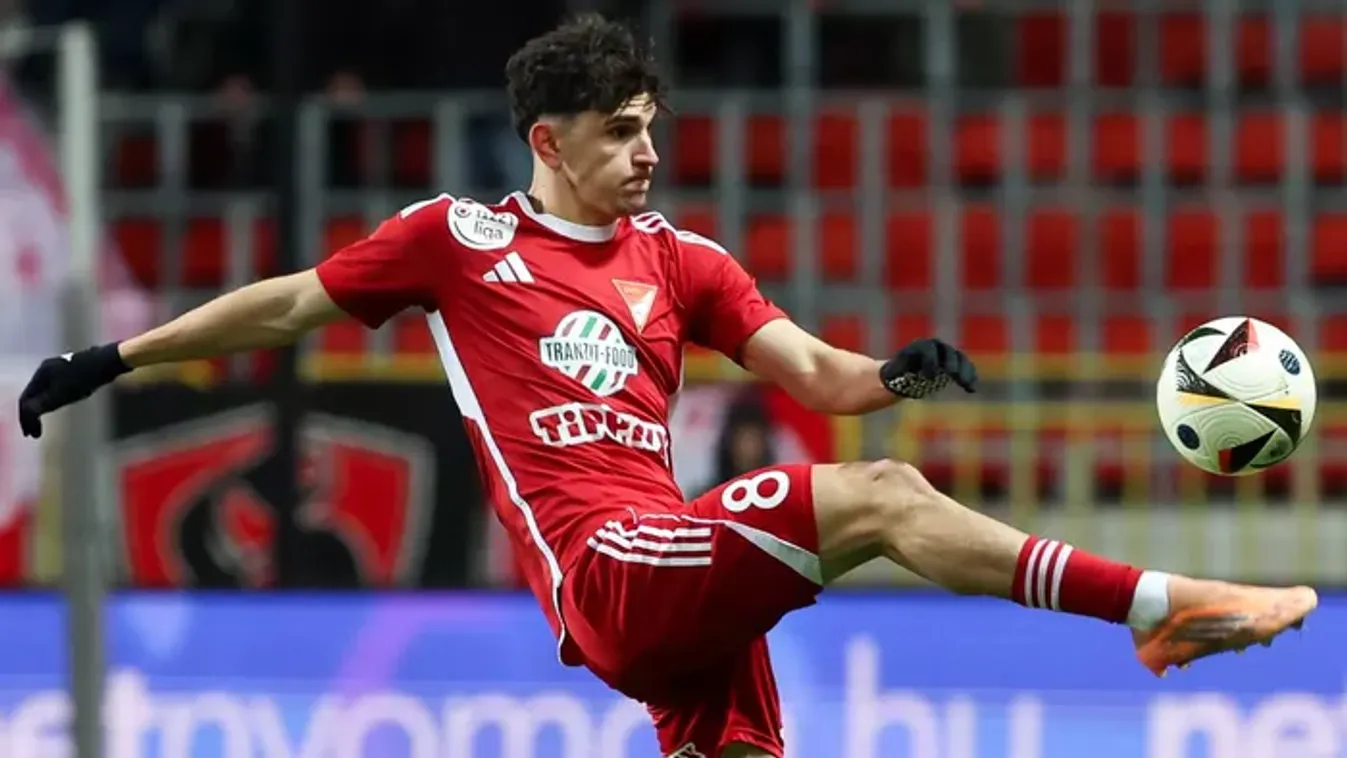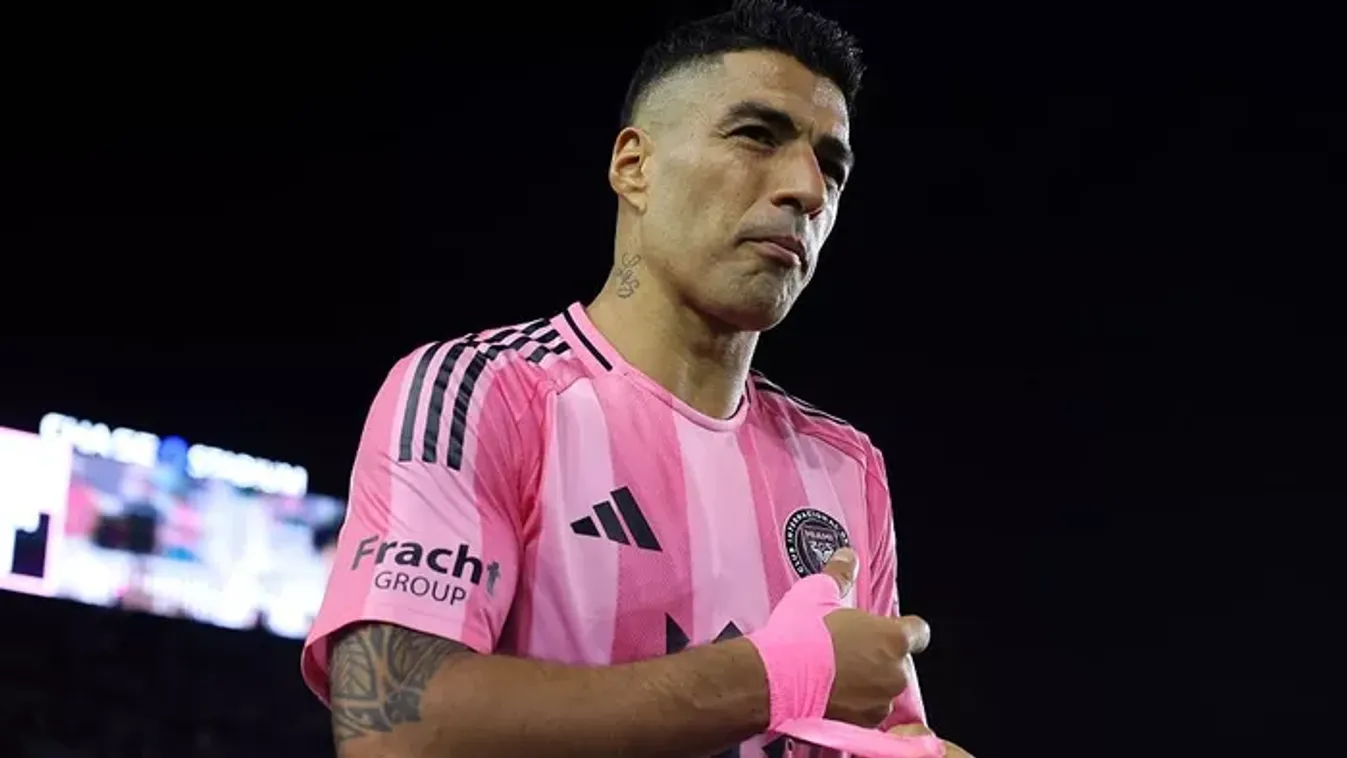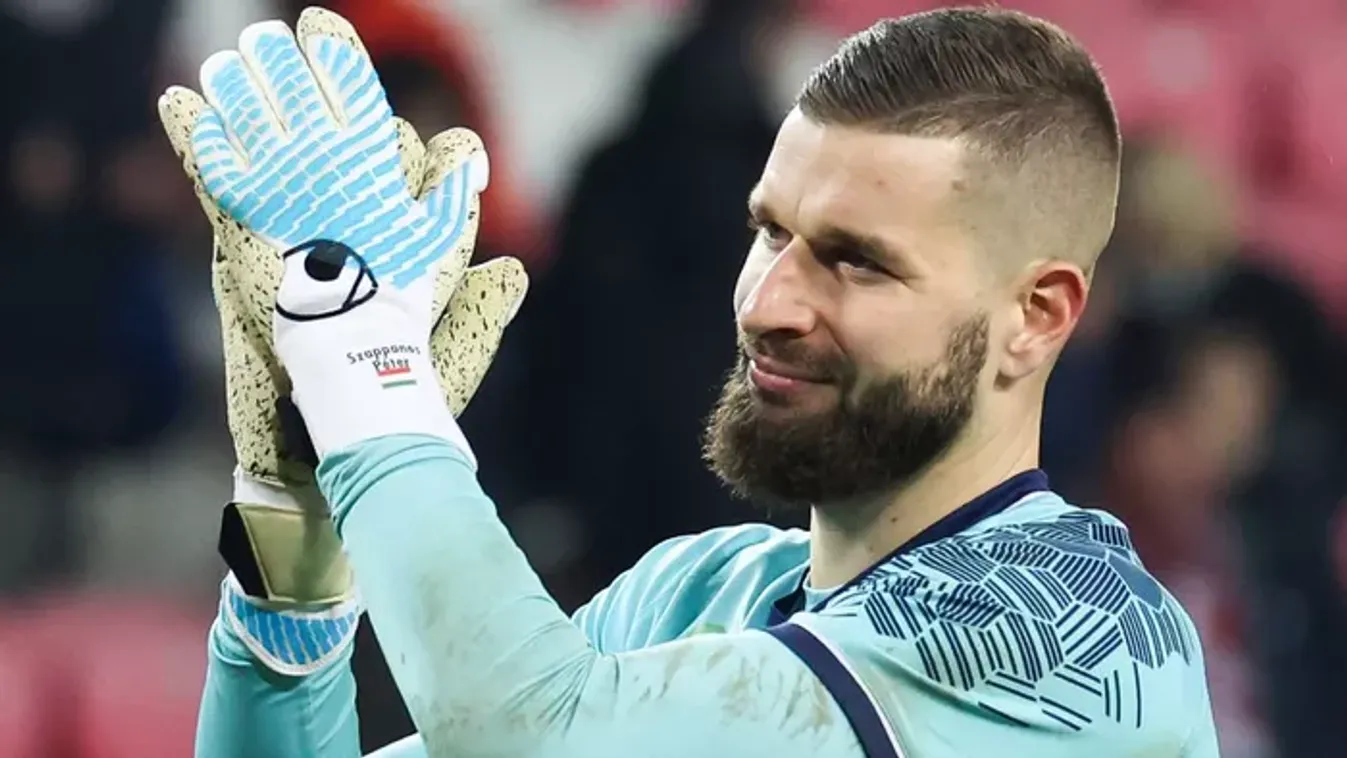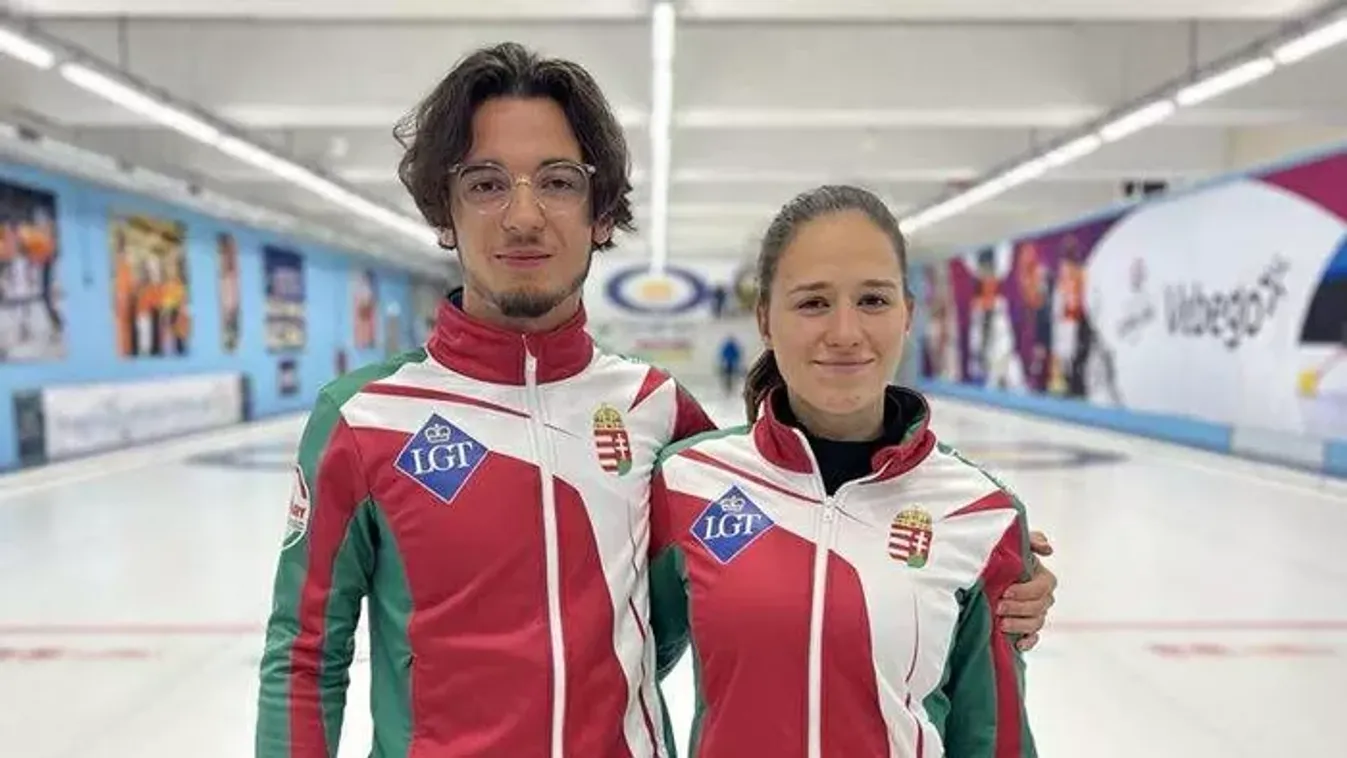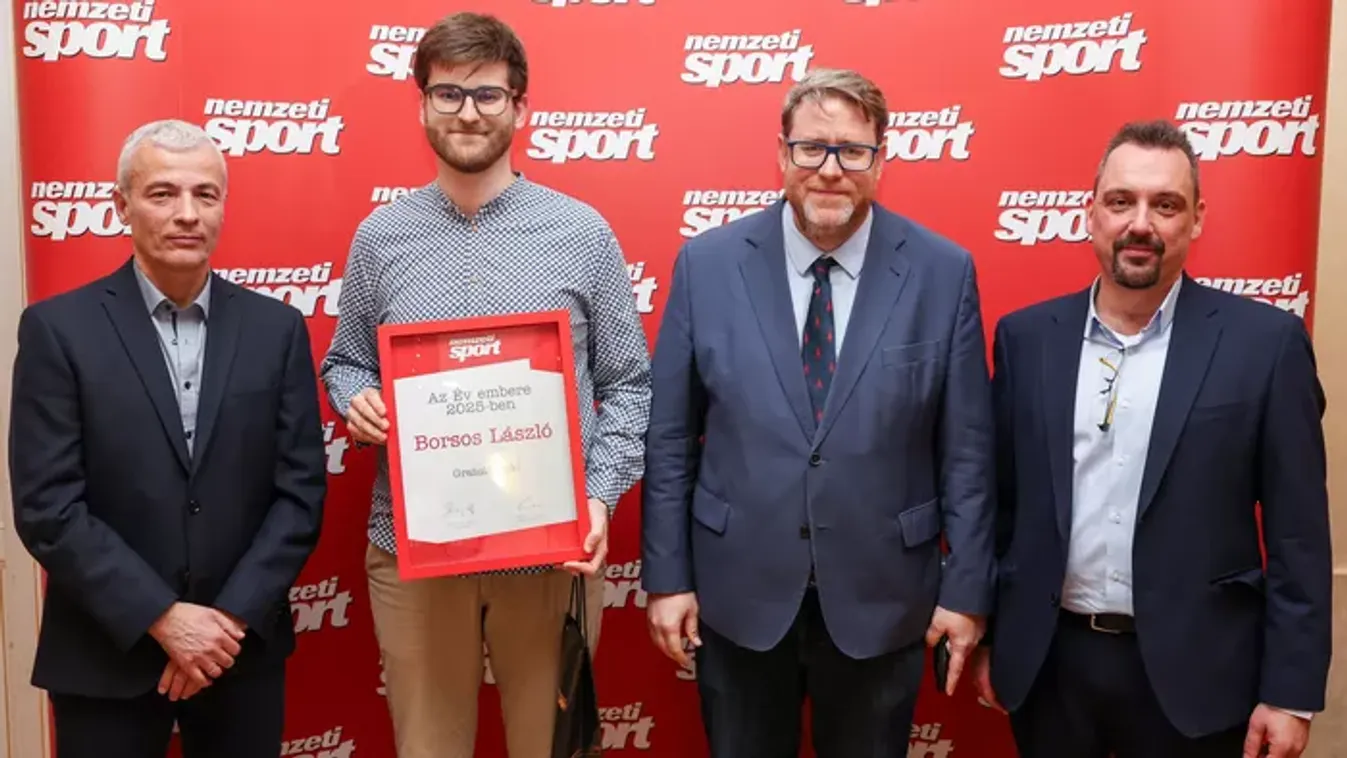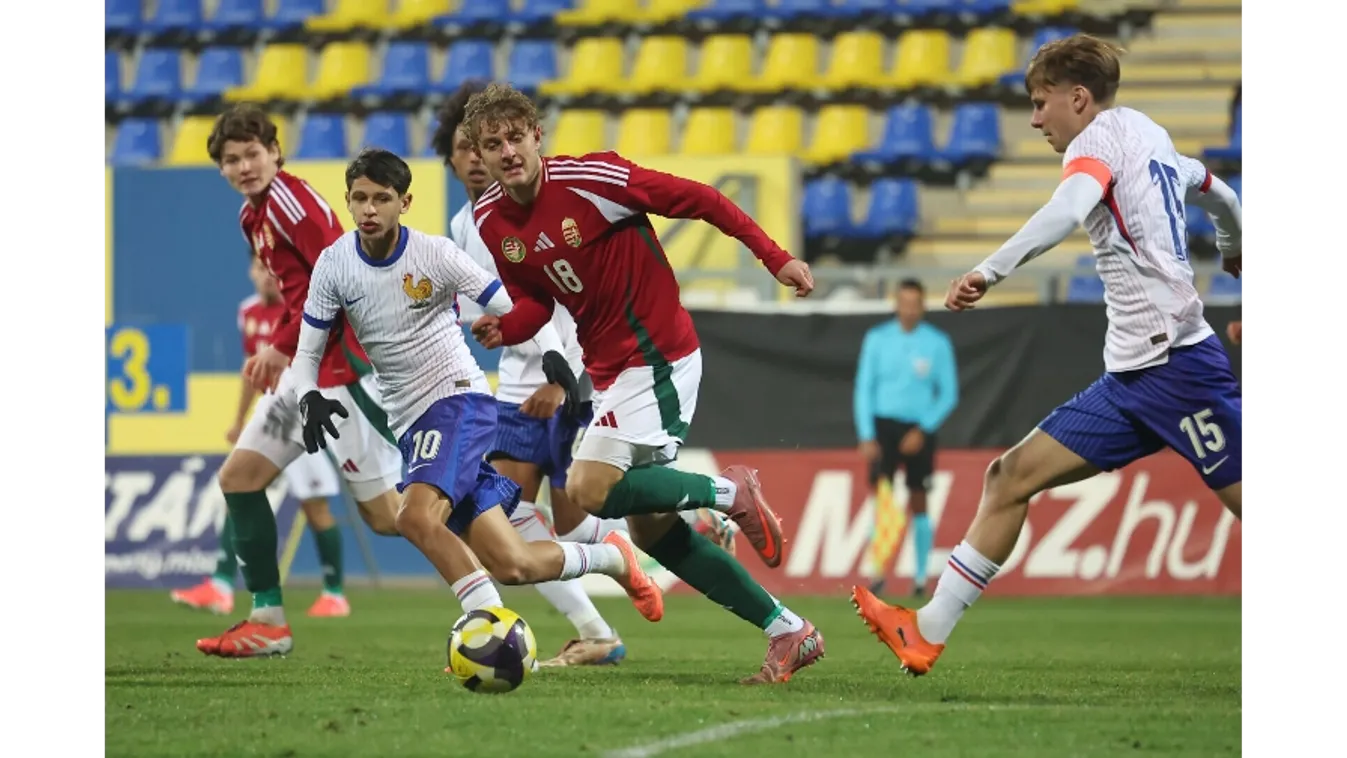Shaolin Sándor Liu: We've learned to handle the pressure
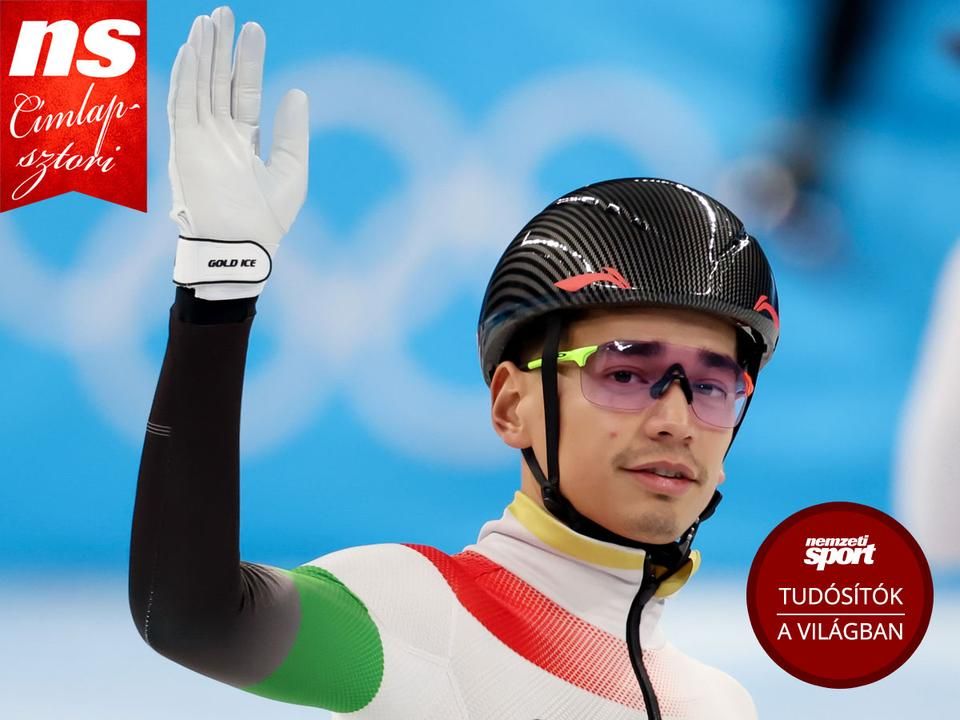
– You arrived in Beijing at the end of January. Did you manage to get over jet lag and get used to the extremely strict requirements?
– I didn't have any particular problems with jet lag, I can fall asleep at night if that's what you mean. Testing is a different story: I went through the most offensive procedure of my life at the airport. In the Olympic Village, they take samples from the throat every day, but they don't treat you gently as we even have to make a sound while they're rummaging down our throats... But all this is incidental. We are very happy with all the negative tests because unfortunately, the experience is that there are more and more coronavirus cases in the village. European champion Natalia Maliszewska of Poland has also tested positive, with whom we live in the same building. Since then, we've been entering the elevator on our tiptoes – unfortunately, we have to use it because we live on the twelfth floor.
– Are you scared?
– This is my third Olympics, and I feel that the village is more deserted than before. It is visible that the situation is special, it is not like usual, and everyone has a slightly different attitude towards the other. On the one hand, it is good to see many familiar faces again, and on the other hand, we do not dare to approach each other as we normally do. Spoken or unspoken, there's a little bit of fear in everyone because here you really never know anything for sure...
– Are you nervous, or are you not having these problems at your third Olympics?
– I'm a little nervous, or I should say, I'm really looking forward to the race. But of course, I was most looking forward to my brother Ádó. I'm glad he's finally with us. By the way, everything is great here so far: the quality of the ice is excellent; we hope it will stay the same for the race. The mixed zone is huge. It will be eternal memory for everyone who can march through here. It's going to be very exciting, and I really want to win here!
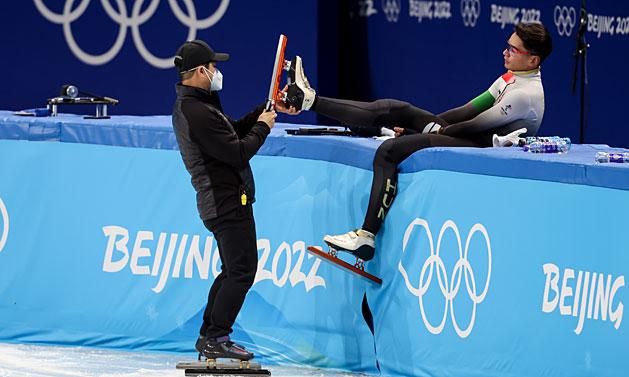
– How familiar will the track be?
– I've raced here before, and I enjoyed it very much. Unfortunately, according to my latest information, there can be no spectators in the stands at all, not even locals, but at least everyone will compete with equal chances.
– But it wouldn't have been bad for you: you and your brother are loved here in China, and you would have had a lot of people cheering for you.
– Yes, it would have been great because it's no secret that I'm a great showman. I like to give the audience a "show" at the competition, and they appreciate that. We are half Chinese, and we speak the language very well. Even in the village, the volunteers stop us on the way, which is also a very nice feeling and gives us a huge amount of confidence. Of course, like everything else, there are good and less good sides to this, and the other day I wondered if the closed gate competition was more of a positive or a negative thing. Then I talked to the Olympians who were in Tokyo, and they said that if you get into the flow, the special Olympic atmosphere, and you can ride the wave, you don't really feel that there's anyone else on the track besides you.
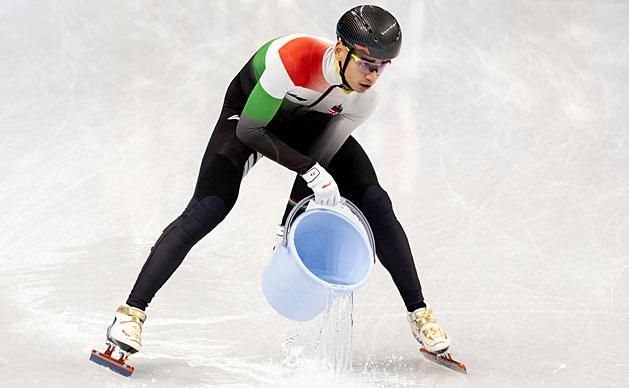
– Do you think your preparation went well?
– Fitness training at the beginning of the year is always hard, but we need to keep ourselves in good shape especially since we will have a very long stay in Beijing. We will be here from the first to the last day. We were tired after the foundation training, but obviously, we had to get the right form. On the first days in Beijing, the training started early, our coaches felt that this would be the right method, so we could move a little easier in the afternoon. It was on Tuesday for the first time that we got on the ice at 8 pm, so we tried to simulate the race a little bit. The competition starts every day in the evening – that's what we're trying to adjust to in training.
– You know the field well, and at this year's World Cup series you were able to experience even more the strengths and weaknesses of the opponents. Where do you see yourself and the team, the defending men's relay champions, in Beijing?
– That's always a difficult question. A few years ago, we were asked where we would put ourselves, and we said we were in the top three. I don't think this is any different now. We are still at the top of the leaderboard, and if all goes well, we can pinch individual medals. However, a lot depends on the draw and the luck factor. We won four years ago, but that was four years ago, a lot has happened since then, new faces have emerged, there have been a lot of changes in racing tactics, too. We tried to keep up with the opponents, we've had everything we needed. We will find out here what this will be enough for. Let's hope for good results.
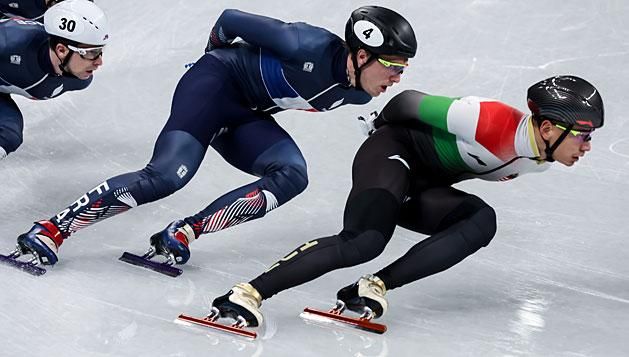
– Perhaps all that has changed is that everyone expects at least a medal from you as an Olympic champion. Do you feel the pressure to perform?
– Others and we always had and will have expectations for ourselves. A professional athlete needs to learn to handle pressure as soon as possible, but it depends on personality; some do better, some do less. I think we've learned to handle it pretty well over the years. The Olympics is completely different, even if it doesn't say much to the laypeople. But I know from my example in PyeongChang that even though we had won races before, when we stood at the start line of the individual race, we were more nervous and afraid of the rivals. Even if you prepare the best you can, at the Olympics, you suddenly don't even know which one is your left hand and right foot.
– And finally, what about the new event, the mixed relay?
– We like it, and it's great that we have another chance to win a medal. At least Ádó and I don't see a problem with that.

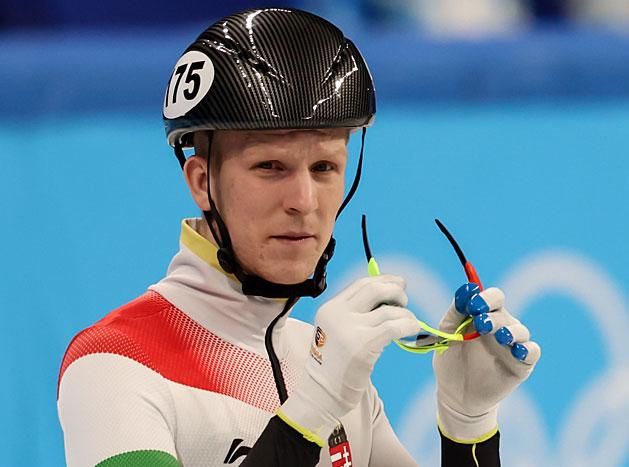
| Dániel Tiborcz was originally a non-traveling substitute in the team, then the coronavirus pandemic, the positive tests of Shaoang Liu and Alex Varnyú changed the plans a little. Fortunately, the younger Liu brother is already training with the team in Beijing (Varnyú may leave on Sunday), but we had to be prepared for all possibilities, so MTK's skater traveled with the national team to the Olympic venue last Wednesday. Although he and Rebeka Sziliczei-Német live outside the village, they can be at the training sessions with the teammates. “We've raced here before on this track at a World Cup, so we are familiar with it. The tracks are very good, including the training one, although the ice now seems a little different: I would say it is softer than usual, fortunately, it is good fast, you can slide nicely on it, and the conditions are the same as at the first stage of the World Cup series" – Dániel Tiborcz shared his experience with us. |
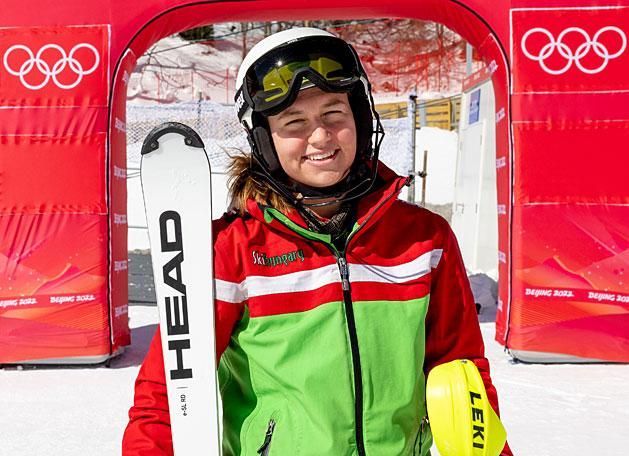
| Thanks to the unique Chinese organization, with a combination of buses and a train, we can get to the Alpine venues (about 80 km north) from the media center of the Beijing Winter Games in four and a half hours. Here, in ideal conditions, in bright sunshine and temperatures around minus 16 degrees Celsius, skiers, including 19-year-old Hungarian female competitor Zita Tóth, could train on fresh hard snow. Our male competitor Márton Kékesi did not go with her and head coach Bertold Szepesi on Thursday due to slight back pain, but hopefully, he will be recovering by Friday, as together with Zita Tóth, he has a big task ahead of him. Due to the short track speed skating team competing the next day, they will be the flag bearers of the Hungarian team at the opening ceremony on Friday night! “We are very happy to be here! The conditions are exceptional, the snow is hard, which I really like, fortunately, the training is going well,” said Zita Tóth of Vasas. "It is a great honor to carry the flag with Marci: we know that this was primarily because the short track speed skaters have an important race the next day, but we are very happy about it. The Bird's Nest Stadium is a breathtaking, incredible facility, it will surely be an amazing sight, a life-long experience. I'm really looking forward to it! As for my racing goals: I think it's important to always set a goal, otherwise, a person cannot develop further. I've decided to do my best, I hope that this will be enough for a top 30 finish. But I also want to enjoy the race, after all, I'm in the Olympics, which I've wanted all my life." |
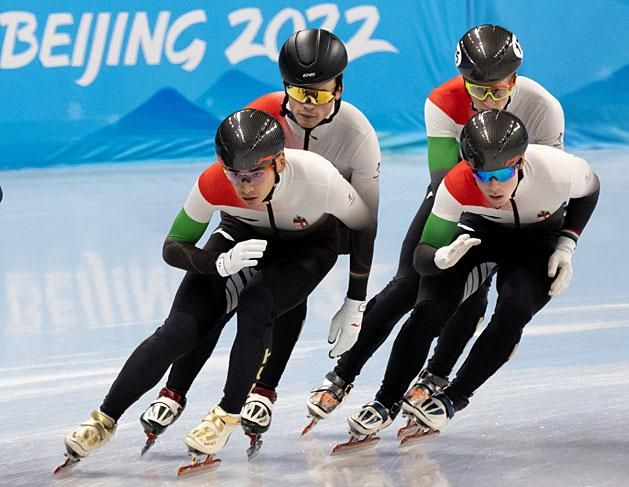
| The Hungarian men's relay team will be on the ice as defending champions at the Beijing Olympics, but it will not be easy for them in the semifinals either, as they are in the same heat as the South Korean, Russia, and the Netherlands, and only two teams can reach the final. On the other side, Canada, Italy, and China, and even more so Japan, look like more vincible opponents. Would have looked like... Of course, it is unnecessary and not worth being scared since six of the eight skaters represent roughly the same level. Team Hungary is clearly one of them, and it is not by coincidence that they won medals at all four stages of the World Cup qualifying series, let us instead root for the Hungarian quartet, probably composed of Shaolin Sándor Liu, Shaoang Liu, John-Henry Krueger, Bence Nógrádi. The men's relay semifinals will be held on February 11, but in the meantime, more champions will be inaugurated in Beijing. The mixed relays will be held immediately on the first day of competition: the quarterfinals, semifinals, and finals will all take place in 70 minutes, and this requires massive endurance in addition to speed, excellent technique, and luck closely related to the sport. We may have problems in the women's section in this regard, and not because Petra Jászapáti and Zsófia Kónya are not good short trackers, but because only two have obtained quotas, so they don't have substitutes. There's no such problem in the men's team. The three Hungarian aces, the Liu brothers and John-Henry Krueger, can do a lot for the success of the mixed relay, and also, all three can reach the top. Although besides them, the same can be said about a dozen more skaters. In any case, it would be surprising if the Chinese competing on home ground, or the South Koreans didn't triumph. This can be stated in view of the women's field. However, we should not pick out an Asian athlete, but a Dutch: Suzanne Schulting has won everything in recent years. It didn't matter if they were hosting a World or European Championships or a World Cup, and in the World Cup fall series, she even showed how to win a race when three South Koreans skated alongside her in the final. She is an absolute potential winner at the Beijing Olympics. But just as Ákos Bánhidi, the head coach and manager of the Hungarian national team, so often warns everyone: this is a short track, anything can happen here... |
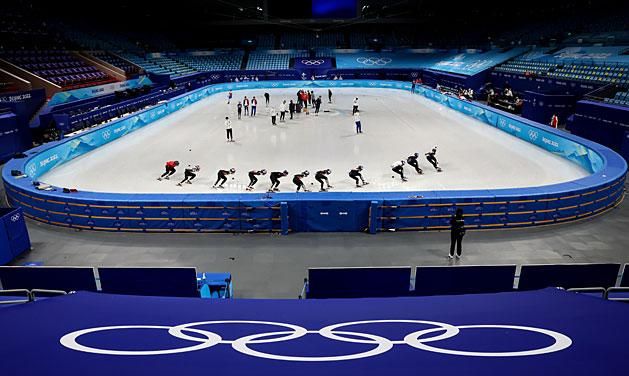
Finals and ceremonies of Hungarian interest
February 5: mixed relay
February 7: women's 500, men's1000
February 9: men's 1500
February 11: women's 1000
February 13: men's 500
February 16: men's relay, women's 1500
Gergely Kohán, Erika Kovács (text), Károly Árvai (photo) report from Beijing on behalf of Nemzeti Sport
Translated by Vanda Orosz

